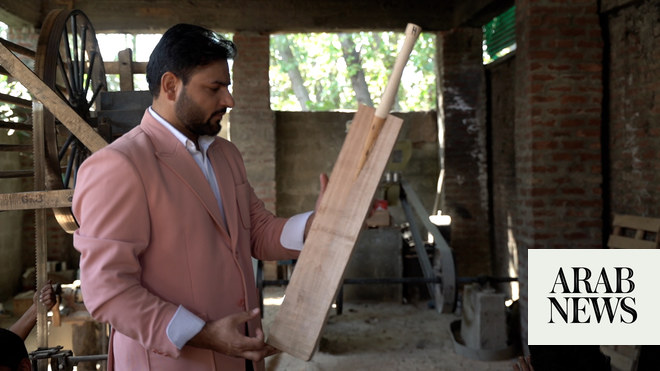
6 officiated for the first time at men’s event
FIFA hailed for “great move” toward equality
NEW DELHI: The female referees officiating at the 2022 World Cup in Qatar are inspiring people across the globe, including in India, where athletes hope that the historic appointments will further motivate sportswomen in the male-dominated game.
For the latest updates, follow us on Twitter @ArabNewsSport
Three women were appointed to officiate at the FIFA World Cup for the first time since the inaugural tournament was held in 1930.
Stephanie Frappart, Yamashita Yoshimi and Salima Mukansanga are among the 36 referees selected this year, alongside Neuza Back, Karen Diaz Medina and Kathryn Nesbitt, who are three of the 69 assistant referees.
When Frappart officiated Costa Rica versus Germany on Dec. 1 with assistants Back and Diaz by her side, the all-female trio forever inscribed their names in the history of the men’s World Cup tournament.
“It’s a historic move and a way of empowering women and showing parity,” Maria Piedade Rebello, a professional football referee who was captain of India’s team at the 2001 AFC Women’s Championship, told Arab News on Monday.
“I will encourage more women to come and join as referees,” said Rebello, who has also been a referee instructor since 2015.
“Indian women referees can also achieve this feat provided they have perseverance and dedication that are required to reach international areas.”
Oinam Bembem Devi, who captained the winning Indian team at the 2010 South Asian Games in Bangladesh, told Arab News she had rejoiced at the appointments.
“Women refereeing the men’s team(s) at the level of the World Cup is a proud moment, it’s a matter of great happiness; it shows women can achieve anything,” she said.
“FIFA is a male-dominated bastion and to make inroads there is not easy,” she said. “We are waiting for that proud day when an Indian (woman) referee officiates (at) the FIFA World Cup.”
The decision was “inspiring” for 37-year-old Tekcham Ranjita Devi, who had played for the Indian football team for a decade before becoming a professional referee.
Devi said women have to work harder to improve their fitness so they can match their male counterparts. “We will have to work extra hard to achieve what the six women have achieved. We will have to work 60 to 70 percent harder than men,” Devi said.
The decision has been hailed for closing the gender gap in football. “FIFA’s step is a great move to bridge the gender gap,” Chaoba Devi, who coaches India’s national women’s football team, told Arab News.
“I hope in the future an Indian referee finds a space at the World Cup — that would be a proud moment for all of us.”











